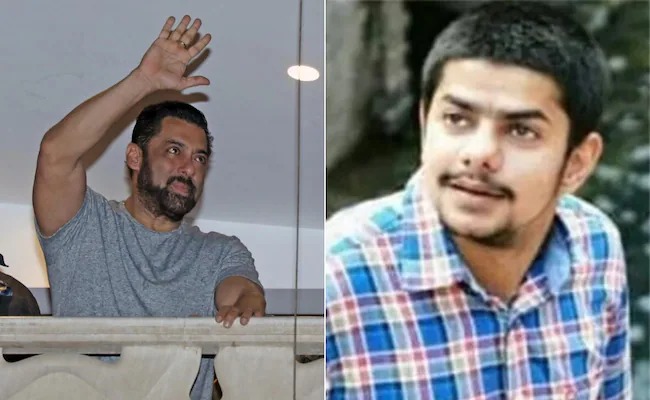In recent weeks, the Indian film industry has found itself at the intersection of crime and celebrity, with disturbing reports emerging regarding a gangster’s chilling speech to his associates before an alleged attack on Bollywood superstar Salman Khan’s residence. This incident not only showcases the darker elements of the entertainment world but also raises critical questions about safety, celebrity culture, and the influence of organized crime in contemporary society. Over the past few years, Bollywood has faced an alarming surge in incidents involving crime, threats, and violence against its stars. The industry, while glittering and glamorous, is not immune to the harsh realities of organized crime, be it through extortion, rivalry, or vendettas. The most recent threats against Salman Khan—a prominent figure with millions of fans—have elicited shockwaves throughout the country and brought renewed attention to the worrying trend of gangster involvement in Bollywood. Salman Khan, known for his blockbuster films and philanthropic endeavors, has naturally amassed a persona that not only attracts attention from fans but also from individuals with less-than-honorable intentions. With a career spanning over three decades and a controversial history that includes legal battles, Salman’s life has been intertwined with media scrutiny and public fascination, making him an ideal target for criminals seeking notoriety or leverage. The reports indicate that prior to the attack, a well-known gangster delivered a 9-minute speech to a group of shooters. This speech was laden with directives that emphasized teamwork, the importance of the mission, and the potential rewards for their actions. Though specifics of the content remain under wraps due to ongoing investigations, details suggest it was a mix of motivational rhetoric and intimidation tactics designed to galvanize the shooters into action. The display of power and camaraderie within the organized crime framework underlines a systematic approach to intimidation, suggesting that such groups operate almost like a business, with hierarchies, strategies, and codes of conduct. The speech served as a stark reminder of the lengths to which criminals may go to exert influence and instill fear not only within their ranks but also on their targets. What often gets overlooked in sensational news stories about celebrity threats is the broader societal implications. The intersection of crime and celebrity culture fosters a dangerous environment where violence becomes a means to an end—a way for individuals to establish authority, gain fame, or settle scores.
For many, the allure of the celebrity lifestyle—glamour, wealth, and fans—can be intoxicating and may drive individuals to extreme measures. The pressure for public figures to maintain a pristine image juxtaposed against threats from fearsome gangs creates an environment of anxiety and vigilance, where personal and professional boundaries blur. Furthermore, the glorification of gangster culture in movies and media fuels a widespread fascination that can romanticize violence and criminality. Instead of being seen for what they are—dangerous and destructive—gangsters may be cast as anti-heroes, complicating the moral narrative surrounding crime. The attack on Salman Khan’s house has catalyzed law enforcement to take pre-emptive action, emphasizing the need for enhanced security measures for celebrities. Police departments have been called upon to devise strategies that ensure the safety of public figures, including increased surveillance, rapid response units, and collaboration with local agencies to deter such threats. Moreover, the incident serves as a wake-up call for policymakers and legislators. With organized crime infiltrating various facets of society, there is a critical need for comprehensive reforms focusing on crime prevention, witness protection, and the criminal justice system’s capacity to handle threats of this nature effectively. As news of the incident circulated, media outlets played a pivotal role in shaping public perception. Sensationalized reporting can sometimes escalate fear and anxiety, leading to a cycle of panic regarding the safety of celebrities. While it is vital to report on such incidents, it is equally important for media to take responsibility in framing discussions around crime and celebrity, ensuring the narrative does not inadvertently glorify violence or criminal behavior. Additionally, the public’s response to such events often carries weight. Social media platforms have become battlegrounds for public opinion, and conversations surrounding safety, celebrity culture, and crime take place in real-time. Engaging in thoughtful discussions about these topics is essential in addressing the root causes of violence and ensuring such incidents do not become normalized. The incident revolving around the gangster’s 9-minute speech to shooters before an attack on Salman Khan’s house is emblematic of a broader malaise affecting the intersection of crime and celebrity. While the allure of stardom continues to captivate many, the darker shadows of organized crime remind us that danger often lurks beneath the surface of fame. As Bollywood and its stars navigate this complex landscape, it is incumbent upon society to reflect on the implications of crime, celebrity culture, and our collective responsibility to foster a safer environment. Safeguarding public figures while understanding the societal factors that perpetuate violence is crucial in creating a milieu where art can thrive without the looming threat of crime.


